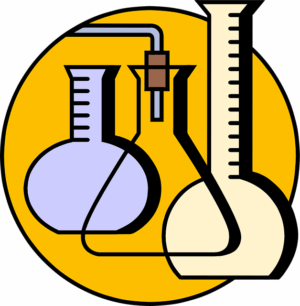Global collaboration in science relies on accurate translations of laboratory reports and scientific data, preserving complex concepts and ensuring their integrity. Professional translation services, combining scientific expertise with linguistic mastery, bridge language gaps, avoiding errors common in machine translations. Adhering to best practices—contextual understanding, technical term definition, original structure preservation, industry-specific glossaries, expert consultation, native speakers, rigorous proofreading—ensures reliable and clear communication worldwide for these critical documents.
In the global scientific community, clear communication transcends linguistic barriers. Trusted translations of laboratory reports and scientific data documents are essential for international collaboration, knowledge sharing, and research validation. This article delves into the critical need for accurate translations in science, exploring challenges specific to lab reports and data, highlighting the role of professional translation services, and offering best practices to ensure effective communication within this vital field.
- Understanding the Importance of Accurate Translations in Science
- Challenges in Translating Laboratory Reports and Scientific Data
- Ensuring Quality: The Role of Professional Translation Services
- Best Practices for Effective Scientific Communication through Translations
Understanding the Importance of Accurate Translations in Science
In the realm of science, where precision and clarity are paramount, accurate translations play a pivotal role in ensuring that laboratory reports and scientific data documents are understood and utilized effectively worldwide. When it comes to sharing groundbreaking research, reliable translations go beyond mere words; they facilitate global collaboration, enable knowledge exchange, and foster innovation.
Consider this: Scientific discoveries often transcend borders, making it imperative for researchers, institutions, and industries to communicate their findings in a universally accessible manner. Trusted translations ensure that intricate laboratory data and complex scientific concepts are conveyed accurately, preserving the original intent and meaning. This is especially crucial when dealing with critical information related to health, environmental studies, or advanced technologies, where even the slightest misinterpretation could have significant implications.
Challenges in Translating Laboratory Reports and Scientific Data
Translating laboratory reports and scientific data presents several unique challenges. These documents often contain highly specialized terminology, complex sentence structures, and intricate technical details that demand precise rendering in the target language. Misinterpretation or mistranslation can lead to significant errors, compromising the integrity of research findings and potentially impacting decision-making processes based on the translated information.
Furthermore, context plays a crucial role in accurate translation. Scientific data is rarely isolated; it’s interconnected with other studies and requires an understanding of the broader research landscape. Effective translators must grasp not only the linguistic nuances but also the scientific concepts to convey the data accurately, preserving its meaning and intent across languages.
Ensuring Quality: The Role of Professional Translation Services
In the realm of laboratory reports and scientific data, accuracy is paramount. When it comes to sharing insights and findings across languages, professional translation services play a pivotal role in ensuring quality. These services go beyond simple word-for-word translations; they harness expertise in both science and language to convey complex information with precision.
By leveraging advanced tools and human translators who understand the nuances of scientific terminology, these services mitigate errors often introduced by machine-only translations. The result is a clear, accurate reflection of your laboratory reports and scientific data documents, fostering reliable communication that advances research globally.
Best Practices for Effective Scientific Communication through Translations
When translating laboratory reports and scientific data documents, adherence to best practices ensures effective communication. These include providing context and defining technical terms to avoid ambiguity. Translators should also maintain the original structure and formatting for easy reference. Utilizing industry-specific glossaries and consulting subject matter experts can significantly enhance accuracy.
Additionally, it’s crucial to employ native speakers or proficient translators who understand the nuances of both languages and scientific terminology. Proofreading and quality assurance steps are essential to catch errors and ensure the translated documents convey the intended meaning precisely. This meticulous approach guarantees that laboratory reports and scientific data remain reliable and understandable across linguistic barriers.
In the realm of science, where knowledge and discovery transcend borders, accurate translations of laboratory reports and scientific data are paramount. Overcoming challenges through professional translation services ensures that research findings are accessible and impactful globally. By adopting best practices in scientific communication, researchers can effectively share their work, fostering collaboration and advancing human understanding. Trusting in quality translations is a game-changer, revolutionizing how science is disseminated and appreciated worldwide.
